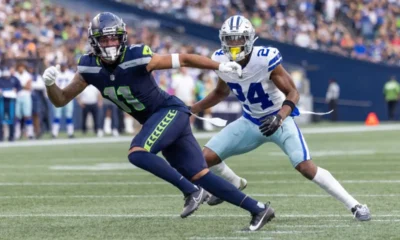When Colorado updated the state constitution in 1992, lawmakers at the time did a pretty good with certain aspects. For instance, if any changes were to be made that affected taxes, voters in the state had to sign off on the measure. This helps keep things in check and ensures that the people actually have a voice in what is going on. That voice was heard this week when the state, albeit barely, passed a sports gambling measure with voter approval. There are now 19 states including Colorado that have legalized sports betting.
Colorado State 19 To Legalize Sports Betting
Prop DD, also known as the water bill, wanted to introduce sports gambling in order to raise money for a mandated water supply line for a conservation plan. In order to cover the costs, tax revenue would be allocated from sports gambling so money wouldn’t have to be sourced from existing channels, but this required the voters’ approval.
It had been expected that Prop DD would pass, but most believed it would win by a landslide. This wasn’t the case at all, as the unofficial margin is just 2% – 51% for and 49% against. However, that’s enough for sports gambling legislation to pass and move on to become an established practice.

100% Bonus up to $1,000 + $25 Token
T&C APPLY | NJ, MI ONLY Join Now
100% Bonus up to $1,000 + $25 Token
T&C APPLY | PA ONLY Join Now
$1000 Risk Free Bet
T&C APPLY | NJ, PA, IN, CO, NJ, MI, IA, LA, MS, OH ONLY Join NowAs of next May, the 33 casinos in the state will be able to offer in-person and online sports bets. Unlike some states that have placed considerable limitations on what is covered by law, Colorado have legalized betting on pro, collegiate, Olympic and motor sports. That ability, coupled with the launch of online sportsbooks, will help the state quickly ramp up its sports gambling-based tax revenue.
Sports gambling proceeds will be taxed at 10%. If everything goes according to plan, this means that the next fiscal year, which begins July 1 next year, will see around $11 million in sports gambling tax revenue. All of that money has already been earmarked to go to the water conservation plan.
The percentage of state residents approving the measure would have likely been higher if it hadn’t been for the way lawmakers worded the ballot entry. It stated, “Shall state taxes be increased by twenty-nine million dollars annually to fund state water projects and commitments and to pay for the regulation of sports betting. …” While it mentioned that the money would be generated from sports gambling activity later in the entry, most people would have most likely read the first five words and begun to sweat, immediately going for “No” on the ballot.
However, the same constitutional amendment of 1992 is why the language had to be written that way. The Taxpayer’s Bill of Rights (TABOR) requires that any change regarding taxes be worded a certain way on the ballot, and Democratic House Majority Leader Alex Garnett, who co-sponsored the legislation behind Prop DD, explains, “TABOR requires us to start with, ‘Shall we raise taxes.’ There’s a baseline of voters in Colorado – it doesn’t matter if you’re taxing casinos or puppies – they’re going to be against taxes, period. Colorado has a unique relationship with gaming, and many voters don’t know we already have a responsible framework to regulate it.”
Colorado has some of the toughest legalized betting laws in the country, and also has some of the lowest limits. Casinos can offer card games, slot and roulettes, and nothing else, and maximum bets are $100.

100% Bonus up to $1,000 + $25 Token
T&C APPLY | NJ, MI ONLY Join Now
100% Bonus up to $1,000 + $25 Token
T&C APPLY | PA ONLY Join Now
$1000 Risk Free Bet
T&C APPLY | NJ, PA, IN, CO, NJ, MI, IA, LA, MS, OH ONLY Join NowNow that Prop DD has been approved, lawmakers will put the pieces together to launch the activity. They most likely already have the groundwork in place, and only need to put the final touches on in order to introduce sports gambling as soon as legally possible. Undoubtedly, big sportsbooks like DraftKings and FanDuel are already trying to work deals with local casinos so they’ll be able to expand their footprint to the state.












